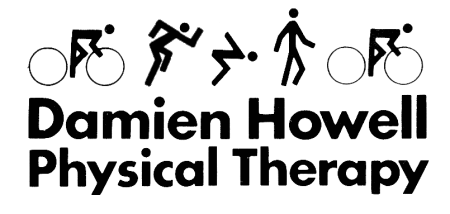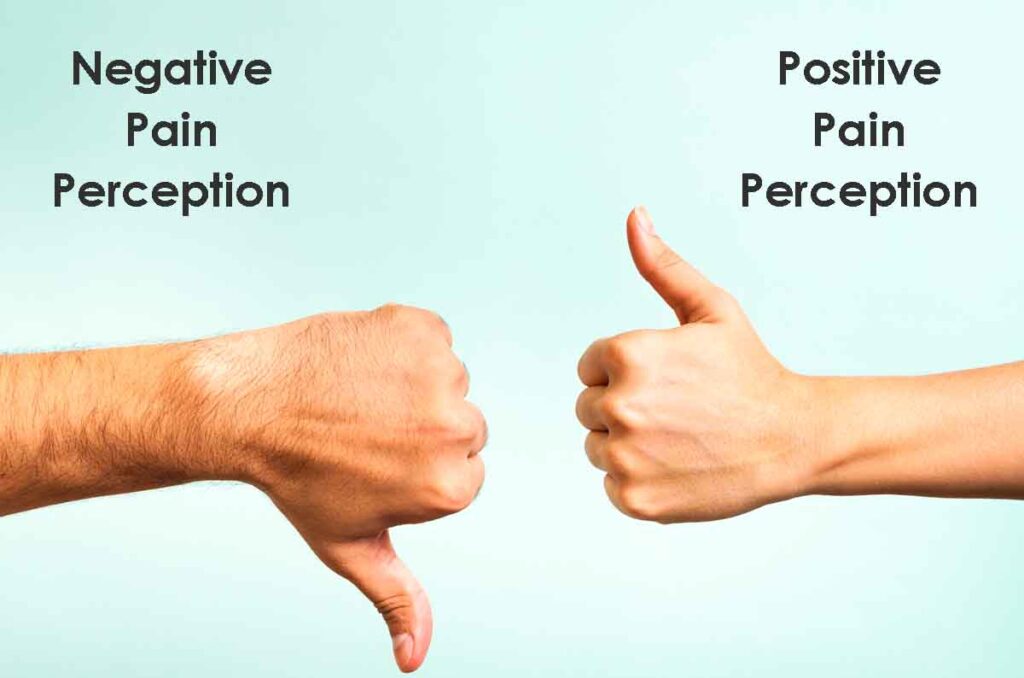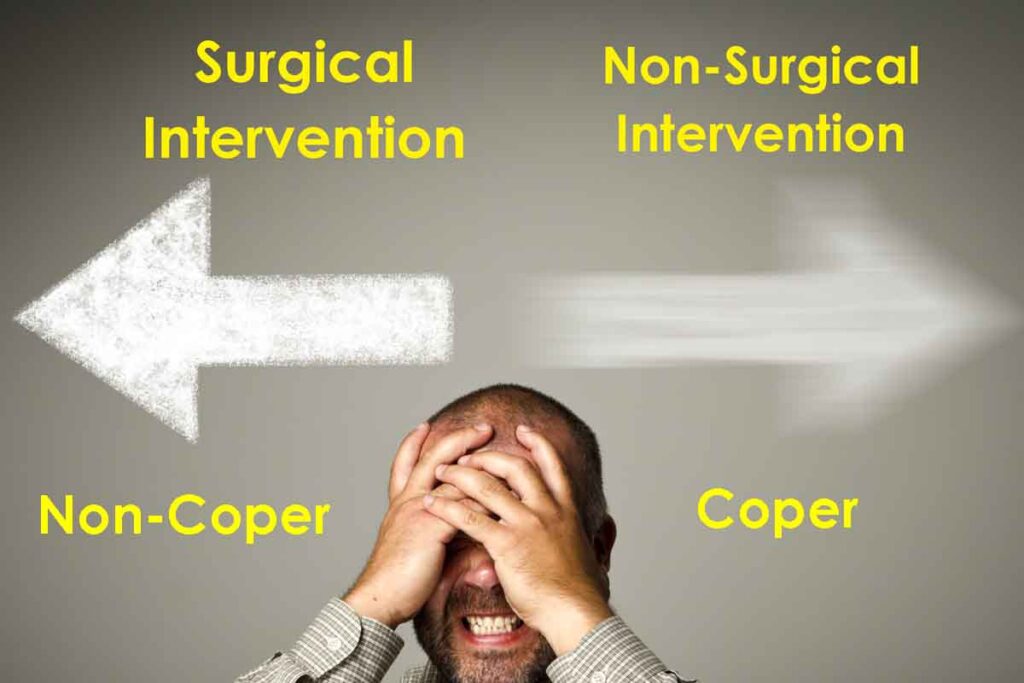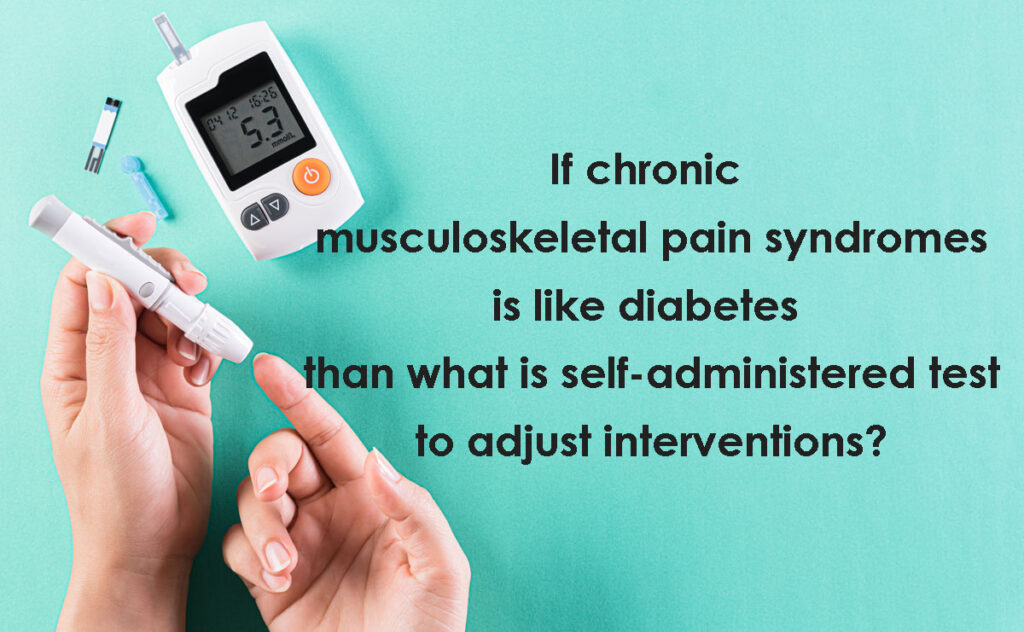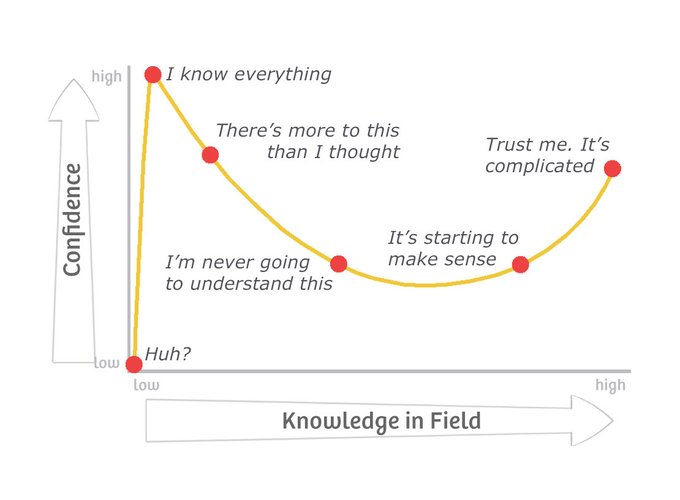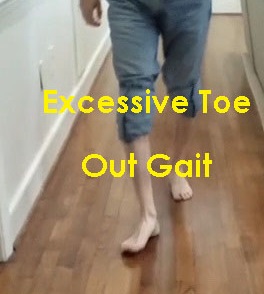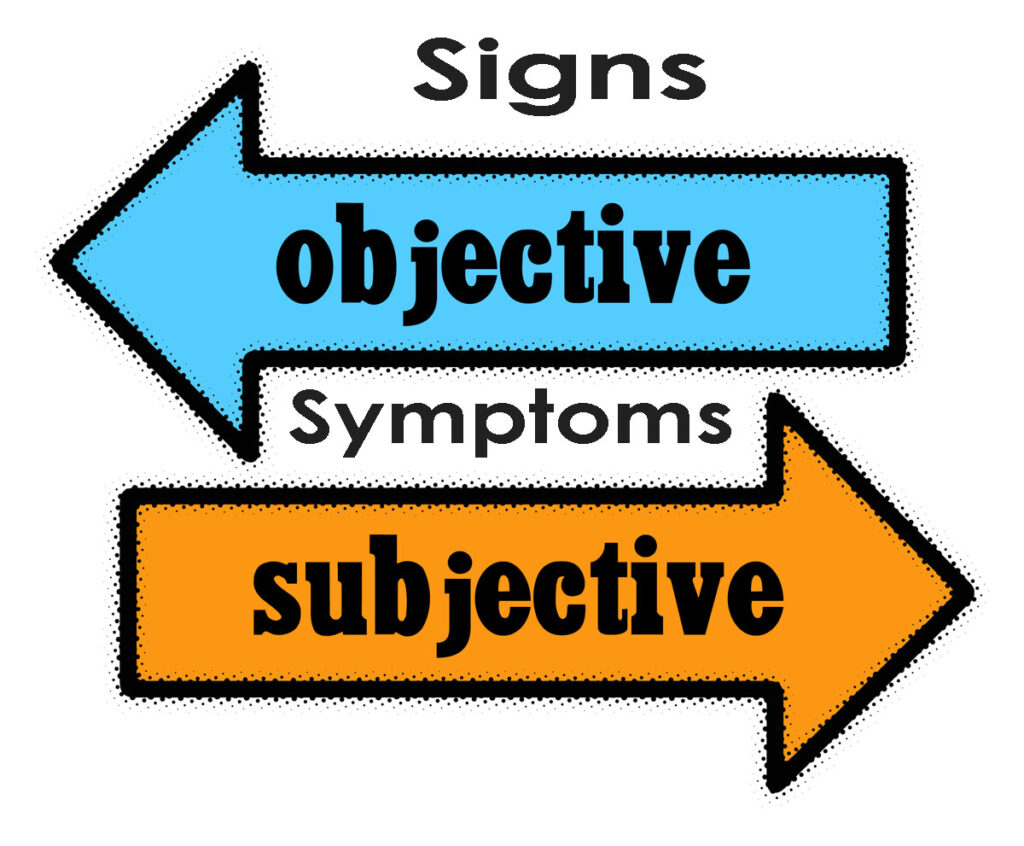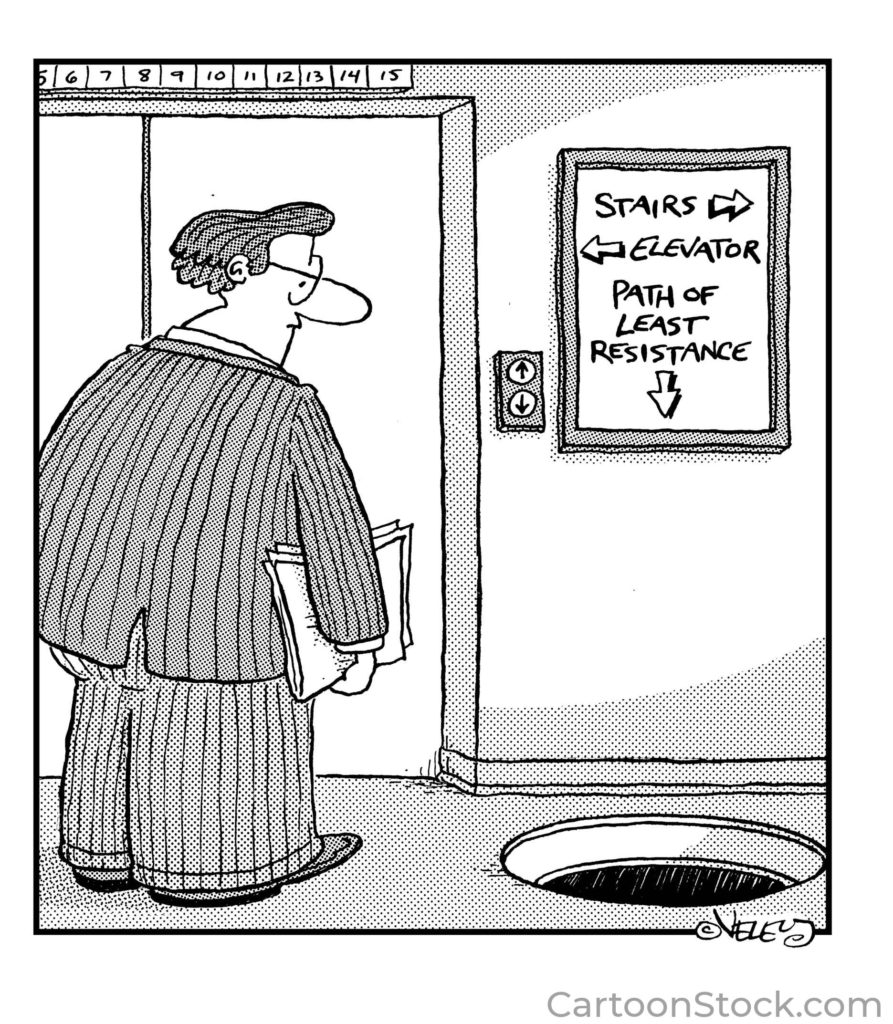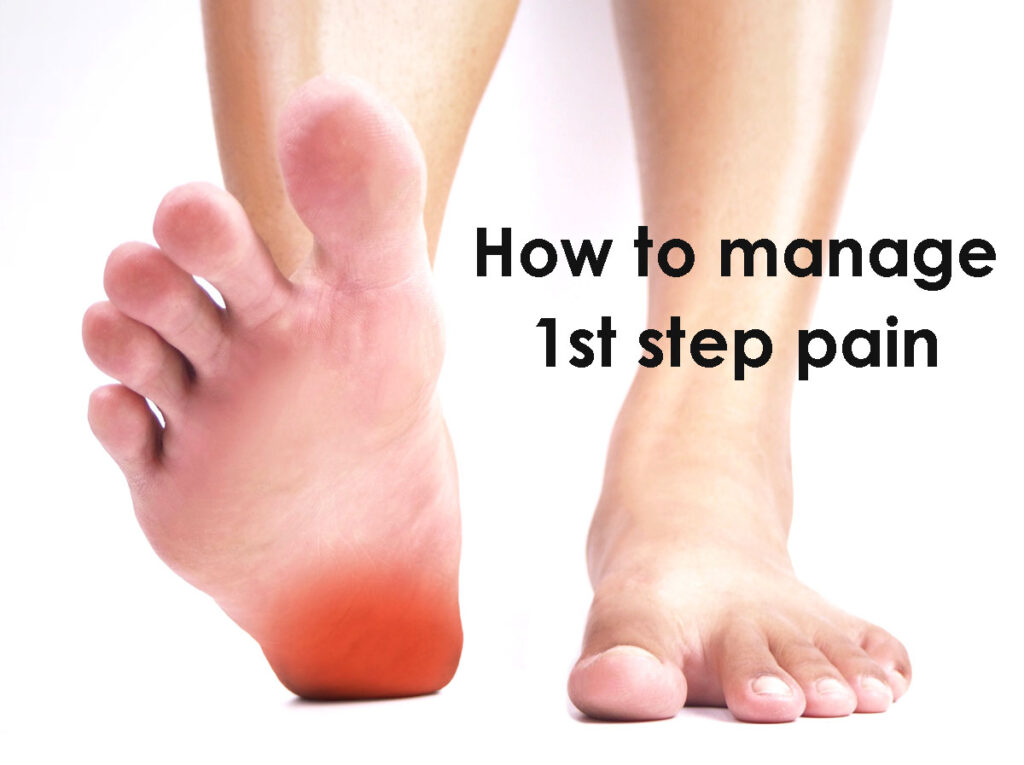For Physical Therapist
Pain – What does it feel like? How this information can guide intervention
When describing your pain details can include location, type, severity/intensity, frequency, duration, triggers, and impact on life. When describing the location of the pain it may not be accurate. Pain can be perceived in an area that is distant from the tissue source of the pain. This is described as referred pain, when the pain…
Read MoreOrthopedic surgery is not always necessary – coper vs non-coper
A diagnostic image such as an MRI can show significant structural damage such as a complete tear of the anterior cruciate ligament (ACL), a complete tear of the rotator cuff of the shoulder, a herniated spinal disc, or other musculoskeletal tissue damage. In 1983 Frank Noyes and colleagues in a seminal study of patients without…
Read MoreMovement-evoked pain measurement for adjustment of interventions for chronic musculoskeletal pain syndromes
If chronic musculoskeletal pain syndrome is like diabetes, then what is a self-administered test to adjust interventions? A thought-provoking article by Jermey Lewis and Peter O’Sullivan suggests “Is it time to reframe how we care for people with non-traumatic musculoskeletal pain” they suggest we have a lot to learn from how other chronic medical and…
Read MoreHormone replacement therapy tendon repair post-menopause
The Dunning-Kruger effect is a cognitive bias in which individuals with limited competence in a particular domain overestimate their abilities. It is when we lack competence that we are most likely to be brimming with overconfidence. The following is a description of how it applies to me. I know everything Early in my career as…
Read MoreDeviant movement resulting in pain – Excessive Toe Out Gait
Asymmetrical movements walking or running are considered deviant or less than optimal movements. The individual in the video below is complaining of musculoskeletal pain in the left lower extremity. What do you see? Do you see the asymmetrical movement? Do you see the right foot is pointing straight ahead, and the left foot is not…
Read MoreUnderstanding the Nuances of Disease, Syndrome, & Uncertainty in Musculoskeletal Pain
Disease is a particular abnormal condition that adversely affects the structure or function of all or part of an organism and is not immediately due to an external injury. Syndrome is a group of symptoms that consistently occur together or a condition characterized by a set of associated symptoms. While disease and syndrome both involve…
Read MoreUsing symptoms &/or sign modification procedure to manage musculoskeletal pain syndrome
The symptom modification procedure is a clinical reasoning process and is a common practice in the Physical Therapy profession. The symptom modification procedure involves identifying the specific movement, posture, and/or activity that reproduces the patient’s symptoms. Typically, the symptom is pain, which can be weakness, falls, or other functional limitations. Then intervening to alter the…
Read MorePath of least resistance is not always the best option – sometimes it is better to have some stiffness
There are three possible relationships between movement and musculoskeletal pain syndromes. There is either too much movement, not enough movement, or an optimal amount of movement. When a muscle tendon unit and/or joint is flexible, hypermobile, or unstable there is too much movement. When a muscle tendon unit and/or joint is stiff or hypomobile there…
Read MoreIntellectual humility and tolerance for ambiguity
When dealing with musculoskeletal pain syndromes uncertainty and ambiguity can cause unease and frustration for both patients and clinicians. The goal is to stamp out uncertainty, but not to stamp out ambiguity. Ambiguity may contain uncertainty. But they are different. Uncertainty is something that is not clearly or precisely determined, something unknown. Uncertainty implies that…
Read MoreSteps to manage first step pain
A definitive symptom of plantar heel pain is “first-step pain” First-step pain is felt on the first step out of bed in the morning or after other periods of inactivity such as sitting in meetings or long car drives. The following are simple steps to manage the 1st step pain: Purposeful pandiculation for pain plantar…
Read More